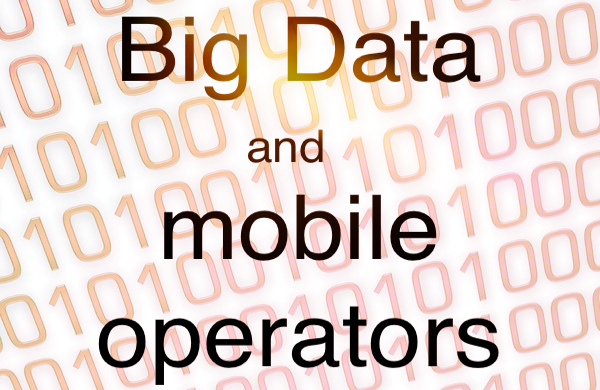Big data - what it means for mobile operators

There has been a lot of hype about “big data” in recent years, but what does it mean for mobile network operators and how can they benefit from it?
Big data is a catch-all term that involves new methods and technologies for collecting, managing, and analysing in real-time the vast increase in data (now typically Petabytes, Exabytes and Zettabytes).
It has been a buzzword in the oil and financial sectors for several years, but it’s only more recently that network operators are starting to realise its potential. It is especially relevant to operators, who are looking for new ways to increase profits in an age of declining revenues – but as yet, less than half have the capability to fully exploit this relatively new technology.

Billions of Gigabytes of data
According to Cisco’s 2014 Visual Networking Index report, mobile data will exceed that from wired devices by 2018, with 61% of data traffic. That’s a staggering growth – in fact even now mobile traffic exceeds that of the entire global Internet in 2000…and by 2016, the amount of data traversing the Internet is expected to reach 1 billion Gigabytes per month!
Likewise for mobile in an age of bandwidth-hungry smartphones, the amount of subscriber data that the networks generate is staggering – mobile data now makes up a huge proportion of global traffic, and it’s this information that can be used to profile customers, improve the networks, or even sold to third party companies.
It’s a sobering thought that your mobile network probably holds Gigabytes of data about you. Every time you make a call, surf the web or send a text, you’re generating useful information. Even by simply having your phone connected to the network, you are sending details about your location, speed, and countless other metrics that reveal perhaps more than you’d like.
The opportunities for big data in telecoms
Why is big data important to mobile operators? It promises to promote growth (and profitability) in several ways:
- Optimisation (quality of service) though better network traffic analysis
- Prevention of fraudulent behaviour (by analysis of call data records)
- Tailored marketing campaigns to individual customers – by location and social networks
- Development of new products and services based on customer behaviour analysis
Big data on its own is useless without effective analytical tools to interpret the data, with the aim of reducing costs and improving the customer experience. Ultimately, the declining revenues of voice and data services also means that the networks want to monetise their customer data in any way possible. Increasingly that means selling or sharing the data with third parties or government departments for marketing or planning purposes. For example, it might be incredibly useful to know what routes are used by crowds leaving a football match so that public transport can be co-ordinated effectively.
How is big data being used?
The mobile operator places special probes in its network that capture billions of daily records, which are then processed to extract useful metrics and (supposedly) anonymised where necessary to remove personal subscriber details. A network with millions of subscribers might generate 10s of billions of data records each day – these all need to be stored, processed, analysed and finally interpreted.
The data collected about you is used to generate statistics about the volume and rate of text messages and voice calls, Internet data volume (web, email and video), and metrics related to call setup times, mobile network usage by region and cell, and other valuable insights such as the top smartphones by data usage.
Customer privacy and security
After the various high profile revelations in the past few years regarding phone tapping and breaches in security, customers are even more concerned how companies use their sensitive personal data.
The mobile networks have unparalleled knowledge of our behaviour patterns (such as browsing habits, physical location, text message content and social network posts), that they are quite rightly wary about selling their big data for commercial gain.
Big data challenges
Telecoms companies have always handled terabytes of data but it’s the quantity, diversity and complexity of the data that has dramatically increased.
Quantity. 4G mobile networks are leading to a massive increase in the amount of data generated by customers, and social media and video sharing are adding to the problem. This means greater storage capacity is needed as well as better ways to organise and access the data.
Diversity. Smartphones, Internet-enabled devices and a new wave of sensors (everything from home monitoring to personal fitness devices) are all generating traffic on the networks in a variety of new data formats. The data has to be efficiently organised and structured before it can be analysed.
Complexity. Telcos need to handle data volumes to large and complex for humans to deal with, while maintaining the quality and integrity of the data.
It’s clear that big data holds great promise for mobile operators, and is an opportunity to gain valuable insights into their subscribers. This should promote a better understanding of their networks and an improved customer experience. It can also be a catalyst to increase revenue and drive innovation, which should lead to better quality networks and services.
Hopefully, it’s the customers that will ultimately benefit from big data.




